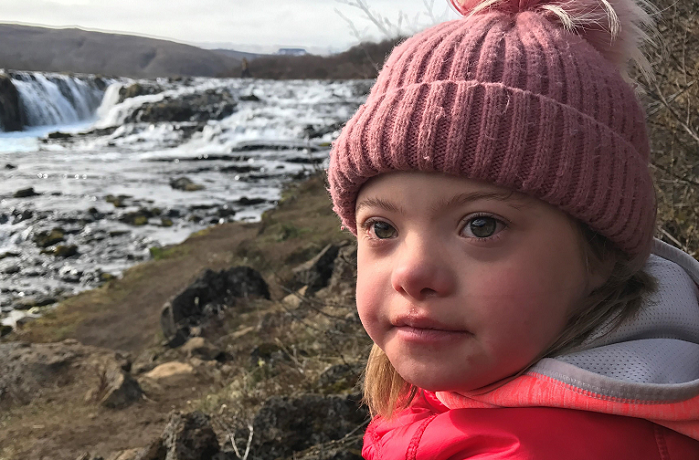A federal judge reversed his ruling about a Missouri pro-life law Friday by blocking a provision that prohibits discriminatory abortions on unborn babies with Down syndrome.
Planned Parenthood and the American Civil Liberties Union challenged the state law, which includes multiple pro-life provisions including a ban on abortions after 8 weeks when an unborn baby’s heartbeat is detectable.
In August, U.S. District Judge Howard Sachs blocked the state from enforcing most parts of the law, but he allowed the non-discrimination measures to be enforced.
On Friday, however, Sachs issued a revised ruling blocking enforcement of the Down syndrome abortion ban as well.
“Sad news,” Samuel H. Lee of Campaign Life Missouri told LifeNews. “At the moment, Missouri will not be able to prevent the discriminatory abortions of unborn children with Down syndrome. In a society which in recent decades has advanced the rights of the most vulnerable, disabled individuals who are already born, this ruling perpetuates the cruel myth that some children are better off never being born.”
According to Sachs’ ruling, Planned Parenthood initially did not show evidence that “’the inability to schedule “Down syndrome abortions” would likely interfere with the abortion rights of real-life women during the time-frame of this lawsuit.’”
However, the abortion chain submitted new evidence indicating that enforcement of the law could prevent unborn babies with Down syndrome from being aborted in the state, according to the ruling.
Here’s more from The Missouri Times:
“The facts do support injunctive relief now … although the Down Syndrome condition in the population is quite rare, thus suggesting rather infrequent abortion requests,” Sachs said. He pointed to data filed by the plaintiffs, which includes the St. Louis Planned Parenthood, showing one in every 800 to 1,000 people have received such as diagnosis.
Sachs also referenced information provided by the plaintiffs which estimated a doctor saw one to four cases a week with a report of a “genetic or structural anomaly” and Down syndrome being the “most common fetal aneuploidy.”
SUPPORT LIFENEWS! If you like this pro-life article, please help LifeNews.com with a donation!
The ruling suggests that unborn babies with Down syndrome are being targeted for abortions. According to evidence presented by Planned Parenthood, abortionist Colleen McNicholas “specifically recalls that three patients she treated in the last 12 months had received ‘a fetal diagnosis of Down Syndrome.’”
In August, McNicholas told the AP that “EVERY reason to have an abortion is a valid reason.”
The Planned Parenthood leader celebrated Sachs’ revised ruling Friday in a statement.
“We are grateful the court has granted an expanded injunction against this unconstitutional abortion ban,” McNicholas said. “My patients deserve access to high-quality abortion care, regardless of the reason they need that care, and they deserve the space to make those decisions based on their values, life circumstances, support system, and faith, free of government scrutiny.”
State pro-life leaders expressed hope that Attorney General Eric Schmitt will appeal the ruling. He already is appealing Sachs’ earlier decision against the law.
“As the father of a child with special needs, Attorney General Schmitt is particularly sensitive to suggestions that an unborn child who will have special needs is any lesser of a human being …” his spokesman Chris Nuelle said in a statement in August.
Research indicates that unborn babies with Down syndrome are targeted for abortions at astronomical rates. The abortion rate for unborn babies diagnosed with Down syndrome is nearly 100 percent in Iceland, according to CBS News. Estimates put the rate at 77 percent in France and 67 percent in the United States, though some estimate it may be as high as 90 percent.
This eugenic targeting has prompted a number of states to pass laws protecting the unborn. North Dakota became the first state to ban abortions on unborn babies with Down syndrome in 2013. Abortion activists challenged the law, but a judge allowed it to go into effect. According to the Charlotte Lozier Institute, Louisiana has a similar law in effect.
Utah also passed a non-discrimination pro-life law this year, but it has a clause that only allows the law to go into effect if a court upholds a similar law, the AP reports.
Indiana, Kentucky and Ohio also passed non-discrimination laws to protect unborn babies with Down syndrome, but none of them are in effect due to legal challenges from the abortion industry.
The final success of such court challenges remains uncertain. In May, the U.S. Supreme Court refused to hear an appeal urging it to uphold the Indiana law. The justices’ decision left open the possibility of hearing an abortion challenge in the future. But it appears that, at least for now, most of them did not want to hear a major abortion case.
Justice Clarence Thomas wrote an opinion urging the court to consider laws that protect unborn babies from eugenic discrimination.
“… this law and other laws like it promote a State’s compelling interest in preventing abortion from becoming a tool of modern-day eugenics,” he wrote. “Although the Court declines to wade into these issues today, we cannot avoid them forever. Having created the constitutional right to an abortion, this Court is dutybound to address its scope.”
Thomas said he believes the court needs to “percolate” on the abortion issue more before hearing a major abortion case.
Missouri and eight other states also prohibit sex-selection abortions, which often target unborn baby girls.

Please click here to read the full story.
Author: Micaiah Bilger




